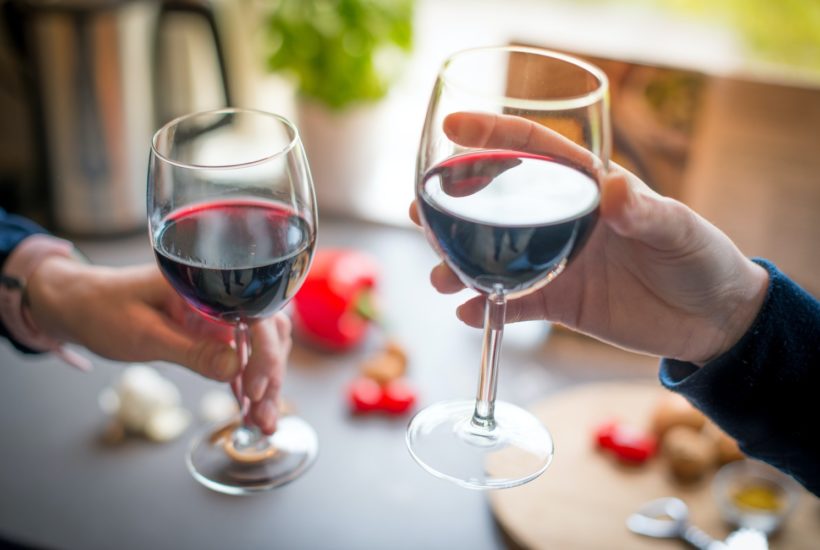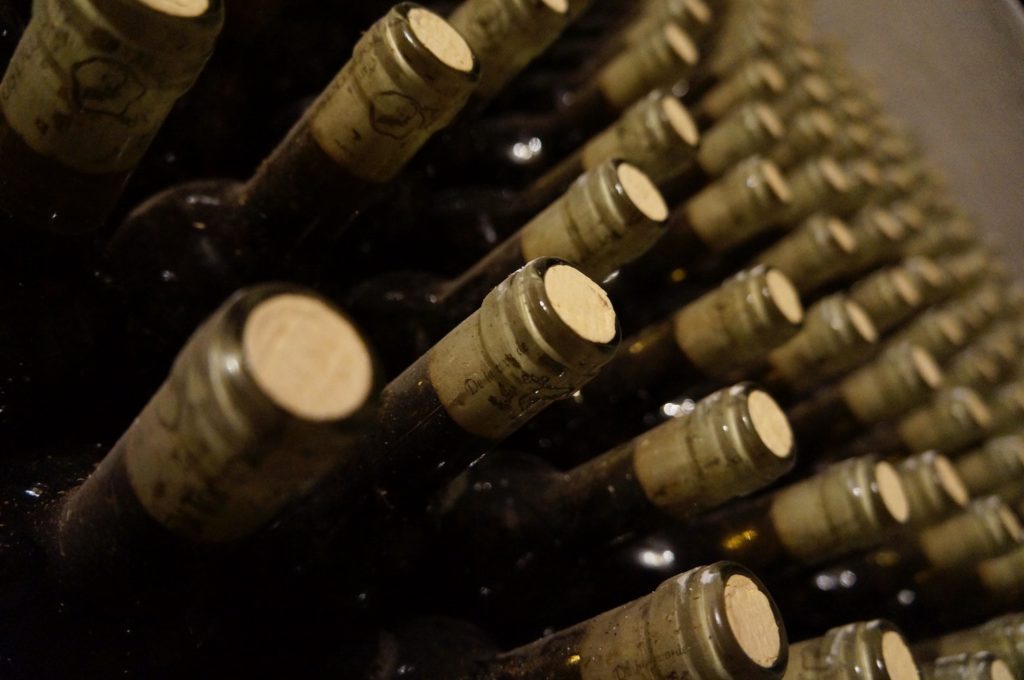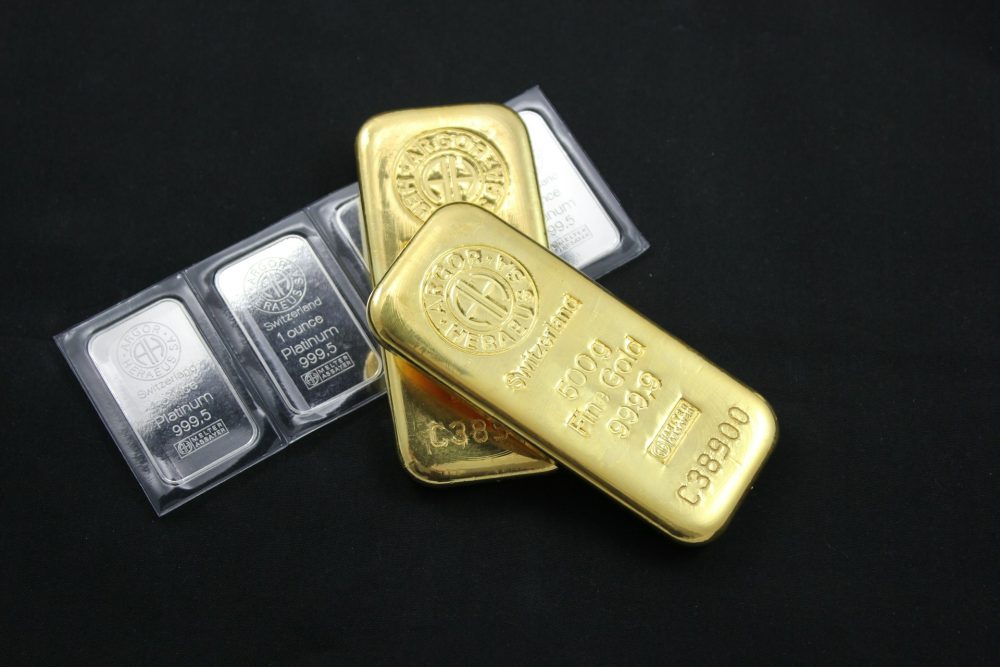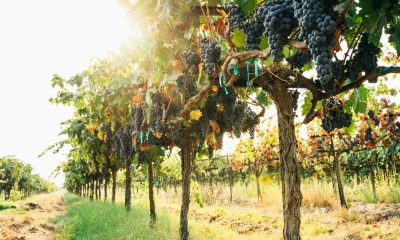Business
If you’re joining a wine club, make it Palate Club
Palate Club’s bold innovation in making use of artificial intelligence has made it a sommelier and a data scientist at the same time. It is changing the face of wine clubs for the better—good news for the wine retail industry, as direct-to-consumer sales reached a staggering $3.2 billion in 2019.

“A touch of new wood on the nose.” “Honeysuckle fruit with hazelnut overtones.” “Luscious and classy finish.” “Pure gold, with no hint of amber.” “A fine rose bouquet.” “Velvety with a firm backbone but ripe tannins.”
These are some tasting notes encountered when drinking wine, and especially when one is serious about how it hits the senses and taste buds. There’s just something about the nectar of the gods that makes every drinker want to be a poet, or, if verbosity is not a strength, to keep asking for one more glass, one more tipple, one more for the road.
For the love of wine
Excellent wine is, of course, a staple in many cultures for centuries. Made from the fermentation of grapes, winemaking can be traced back to ancient China and Iran in Asia, and Greece, Armenia, and France in Europe. Wine pottery and other artifacts have also been found in Egypt, India, and Italy.
Much has been written about how wine has colonized the world, and how it is deeply woven in our identity. From celebrations to burial ceremonies, from trading to cooking activities, from gifts of honor to symbols of religion—vintages have traveled from place to place witnessing history.
Meanwhile, American viticulture, specifically California, didn’t flourish until much later. Thomas Pinney, who wrote A History of Wine in America, said: “Few things can have been more eagerly tried and more thoroughly frustrated in American history than the enterprise of growing European varieties of grapes for the making of wine. Not until it was recognized that only the native grape varieties could succeed against the endemic diseases and harsh climate of North America did winemaking have a chance in the eastern part of the country.”
He continues: “By the beginning of the 20th century, the growing of grapes and the making of wine across the United States was a proven and important economic activity.”
A captivated audience
As of February 2019, there are about 10,000 wineries in the U.S., 4,425 of which are in California, making it the leading state in wine production at 85%. There are about 240 million adult Americans who drink wine, with each person consuming 11 liters per year.
Suffice to say, wine is a beverage of choice for the U.S. market, whose value was at $70.5 billion in 2018 alone. The total wine market volume amounts to 408 million cases, with 105 million cases (26%) imported from other countries.
It is also notable that when it comes to wine retail, direct-to-consumer (DtC) sales reached a staggering $3.2 billion in 2019. Napa County, in particular, shipped $1.5 billion worth of wines at an average price of $69.39 per bottle, increasing its sales by 3.4% compared to 2018. Sonoma County’s shipment climbed by 5.8% in volume as well. Andrew Adams, editor of the Wine Analytics Report, says, that the DtC channel “remains the most dynamic and promising sector of the wine business.”
No wonder wine clubs have become extremely popular amidst vineyard trips and cellar tours. Some emerging groups are Israeli Wine Lovers who adhere to everything kosher, Out in the Vineyard for those who identify as LGBTQ+, and Black Girl Wine Society for women of color. Haus, on the other hand, is a startup that concentrates on aperitifs, and recently got $4.5 million in funding.

A personal wine algorithm
Pushing the boundaries though is Palate Club, whose serious commitment to using artificial intelligence rivals that of its devotion to wine. Based in San Francisco, this wine club personalizes the customer’s first delivery right away based on their preferences. It then sends the bottles with the labels disguised to initiate a true blind tasting without bias, and future shipments are further customized according to taste.
Palate Club’s bold innovation is that it is a wine concierge and a data scientist at the same time, using a formula of over 200 wine traits to build an accurate palate profile. Just as an algorithm is used by the likes of Spotify and YouTube to match music or videos that the user might like based on their history, so is the company making use of statistics supported by experts to pair wines for its customers—“telling you what you like and why you actually like it.”
The company’s wine app learns over time—the more one rates bottles, the more Palate Club gets smarter at explaining the user’s palate and predicting what wine to ship. This solves the vacuum left wide open by other wine clubs and online sellers that promote the same labels, or worse, sell mass-market bottles that never even really taste good.
Embracing change
Per the 2019 State of the Wine Industry Report, an average winery gets 36% of its DtC sales from wine clubs. Danny Brager, senior vice president of Nielsen’s Beverage Alcohol Practice, is very much aware of consumers’ behavior when it comes to DtC: “As more consumers choose to purchase more of their goods online in general, we expect the DtC shipment channel to also increase in size and popularity due to its convenience and broad selection of available wines.”
Silicon Valley Bank Wine Division founder Rob McMillan also said, “The U.S. wine business is hitting a ceiling in its ability to grow because of a few fundamental challenges the industry hasn’t fully embraced or addressed. In an increasingly digital world, what industry would insist that its consumers first physically come to its place of business to buy its wares?”
There is no doubt that wineries today are facing a challenge in terms of how to move forward and grow with a new generation of wine drinkers. Oenophiles still exist—they just moved online.
In fact, they prefer the convenience of having bottles delivered to their doorstep, something that Palate Club wants to emphasize, that is, the familiar relationship between the company and the consumer, without the interference of a middleman that will usually add more dollars to the process. Through the app, one can get “the personalized suggestions of a wine expert and the quality of artisan winemakers”—plus discover the easy process if you want to buy wine online.
Why join a wine club
Wine is like “a time travel machine in a bottle”—nothing can beat the pleasure of tasting Bandol during summer in Provence or Sassicaia from revolutionary Tuscany. But for a wine enthusiast who can’t often jet set, a wine club is a way to discover new bottles selected by master sommeliers.
Keeping in mind that these wine subscription services also have a price range, and that more or less expensive doesn’t necessarily mean better, this is also an opportunity to taste limited releases or find new favorites.
Moreover, it is an occasion to educate oneself and learn more about the type of grapes and terroir for a particular wine, how the texture feels in the mouth, and how the finish—that moment when the flavor just melts away from the tongue—can be spectacular.
—
(Featured image by Skitterphoto via Pexels)
DISCLAIMER: This article was written by a third party contributor and does not reflect the opinion of Born2Invest, its management, staff or its associates. Please review our disclaimer for more information.
This article may include forward-looking statements. These forward-looking statements generally are identified by the words “believe,” “project,” “estimate,” “become,” “plan,” “will,” and similar expressions. These forward-looking statements involve known and unknown risks as well as uncertainties, including those discussed in the following cautionary statements and elsewhere in this article and on this site. Although the Company may believe that its expectations are based on reasonable assumptions, the actual results that the Company may achieve may differ materially from any forward-looking statements, which reflect the opinions of the management of the Company only as of the date hereof. Additionally, please make sure to read these important disclosures.

-

 Business6 days ago
Business6 days agoDow Jones Breaks 50,000 as Bull Market Surges Amid Caution and Volatility
-

 Business2 weeks ago
Business2 weeks agoBattered, but Still Bullish on Gold & Silver
-

 Impact Investing4 days ago
Impact Investing4 days agoEU Backs 90% Emissions Cut by 2040 and Delays ETS2 Rollout
-

 Crowdfunding2 weeks ago
Crowdfunding2 weeks agoNewcleo Raises $85 Million to Advance Fourth-Generation Nuclear Reactors

























